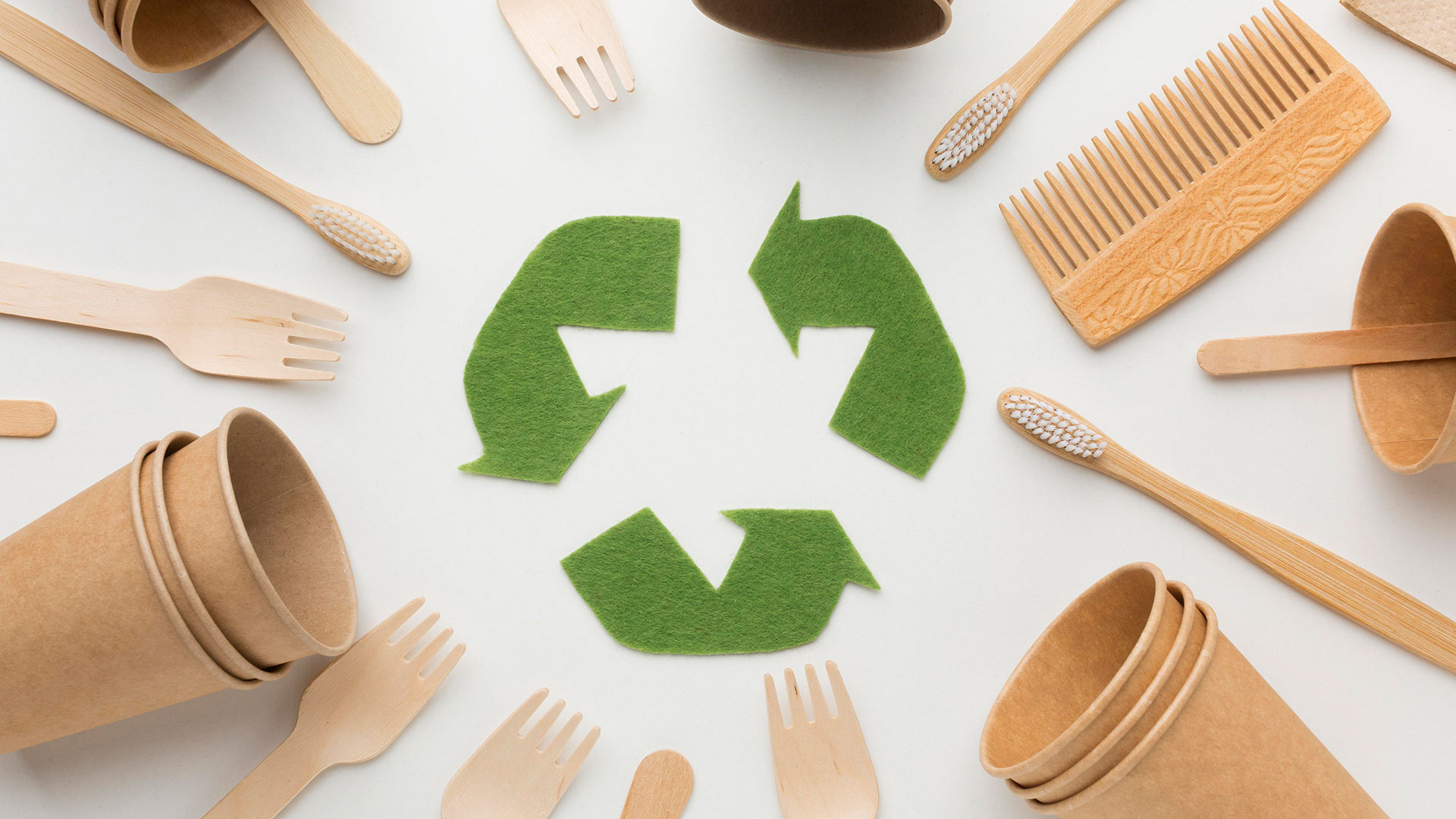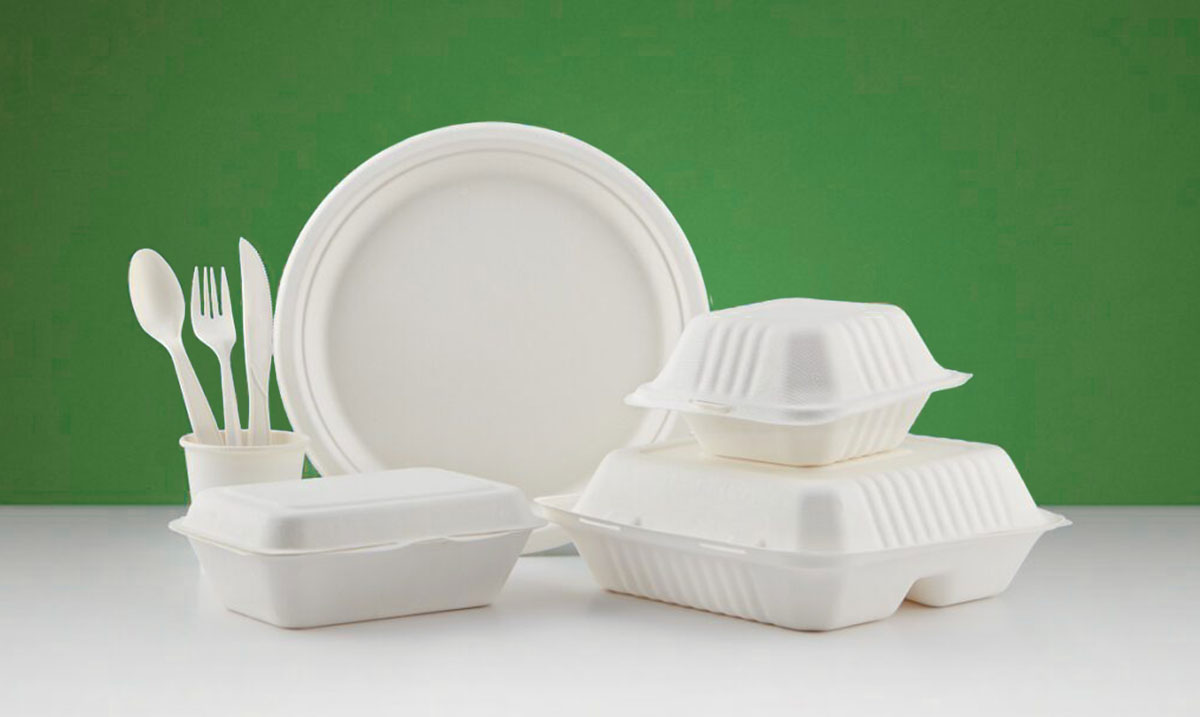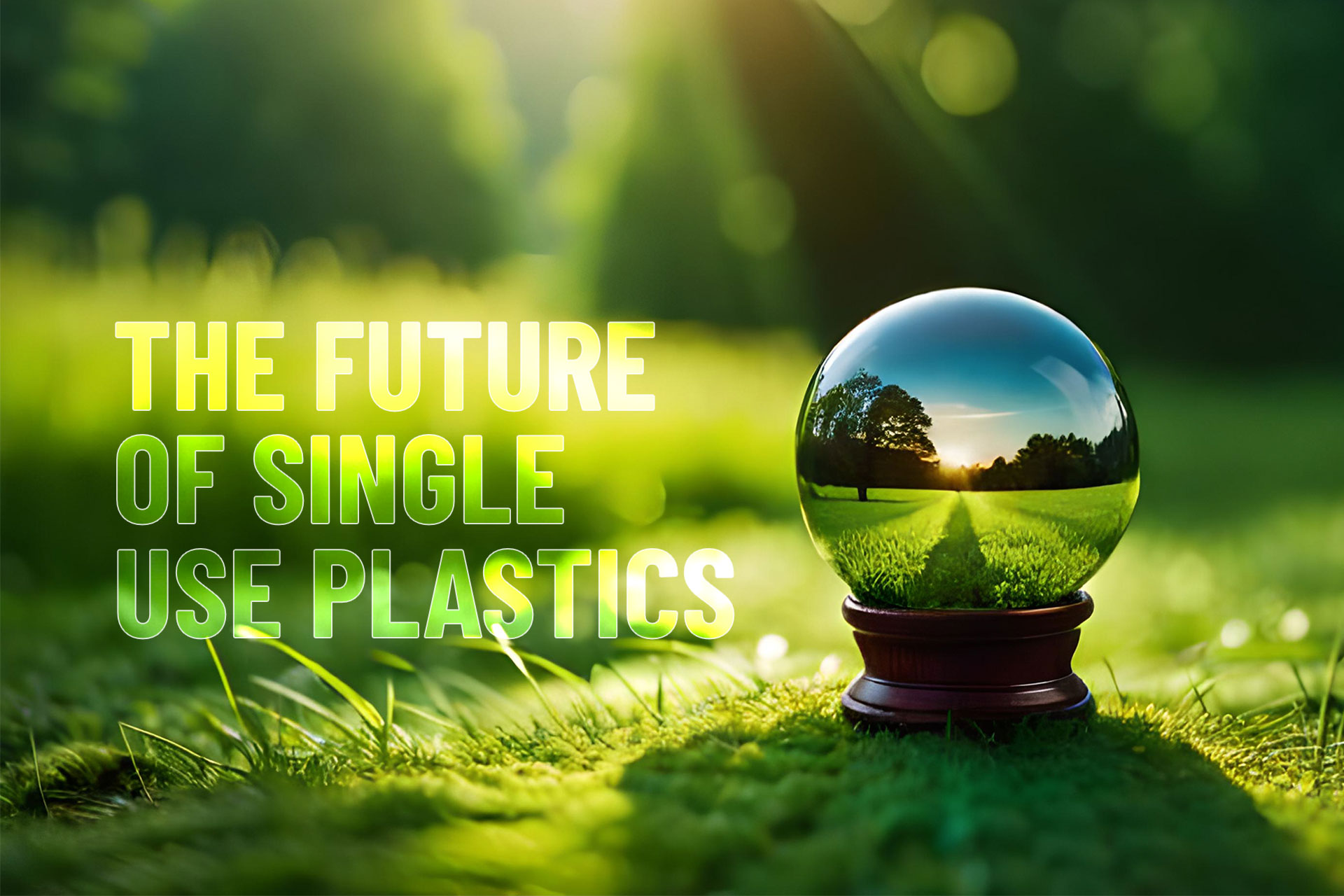
The Benefits of Using Biodegradable Catering Disposables
With the upcoming changes to UK legislation around single use plastics, we consider the key benefits of switching to biodegradable alternatives.

From October 2023, the UK government intend to ban single use plastics. Whilst single use plastic products have often been the cheapest option for many food and hospitality businesses, there will be no option but to seek environmentally friendly alternatives. This will typically mean that you food packaging will have to be either biodegradable, compostable, recyclable, re-usable, or a combination of all of these. So, should you consider biodegradable packaging? Here’s a brief look at the pros and cons.
There are several benefits to using biodegradable catering disposables:
Environmental friendliness:
Biodegradable catering disposables are made from materials that break down naturally and do not harm the environment. They can be composted, recycled or even disposed of in landfills without causing harm to the environment.
Reduced waste:
Biodegradable catering disposables are designed to be used only once and then disposed of. This reduces the amount of waste generated by the catering industry, which is a significant contributor to landfill waste.
Positive brand image:
Using biodegradable catering disposables sends a positive message about your business and shows that you are committed to sustainability and reducing your environmental impact. This can help to attract environmentally conscious customers and enhance your brand image.
Versatility:
Biodegradable catering disposables come in a wide variety of shapes, sizes, and materials, making them versatile for use in a variety of catering settings. They can be used for both hot and cold foods, and are available in different colors and designs.
Price:
Without doubt, the biggest con at this moment in time is that biodegradable products cost more than single use products. While biodegradables are often slightly more expensive in price than traditional catering disposables, they are however becoming increasingly available as more manufacturers are producing them. With the upcoming increase in demand due to legislation changes, it is more than likely that the cost of biodegradable products will become increasingly competitive.
From several weeks to several months.
Actually, the time it takes for biodegradable food disposables to degrade can vary depending on several factors, such as the type of biodegradable material used, the size of the item, and the conditions in which it is disposed of.
These materials can take anywhere from several weeks to several months to break down in a composting facility or landfill. Some materials, such as plant-based plastics made from corn or potato starch, may break down more quickly than others.
It is important to note that not all biodegradable materials will break down completely in a landfill or composting facility. Some materials may require specific conditions, such as high temperatures or a certain level of moisture, to biodegrade fully. In addition, if biodegradable items are not disposed of properly, such as being littered on the side of the road, they may take longer to break down or may not biodegrade at all.
Overall, the time it takes for biodegradable food disposables to degrade can vary widely depending on the specific material and disposal conditions. However, in general, they tend to degrade faster than traditional single-use plastic disposables, which can take hundreds of years to break down in a landfill.
Most biodegradable food disposables are made from materials such as paper, cardboard, and some plant-based plastics (corn or potato starch). These materials can take anywhere from several weeks to several months to break down in a composting facility or landfill. Plant-based plastics made from corn or potato starch, can actually break down more quickly than other biodegradables.
Using biodegradable catering disposables offers several benefits to businesses, including environmental friendliness, reduced waste, cost-effectiveness, a positive brand image, and versatility.

With the upcoming changes to UK legislation around single use plastics, we consider the key benefits of switching to biodegradable alternatives.

Ever wondered what bagasse is? If you haven’t heard of it before, don’t worry, because of the governments drive to abolish single use plastics, bagasse is about to have its day in the sun.

From October 2023, the UK government has announced that a range of polluting single-use plastics will be banned in England. What does it mean for you?
Copyright © 2024 Eco Cup Store
Registered Office: Unit 9D Mapplewell Business Park, Mapplewell, Barnsley, S75 6BP.
Co. Reg. Number 14307342 VAT No. 427 9634 62